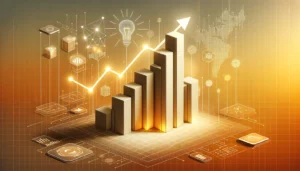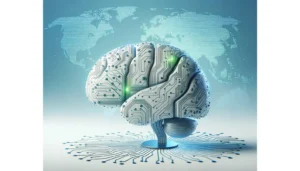Definition and causes of inflation
The inflation it represents a general and sustained increase in the prices of goods and services in a country. This phenomenon directly affects the purchasing power of the currency.
When inflation rises, the amount of money available buys fewer products, which impacts the daily economy and people's quality of life. It is a key phenomenon in economic analysis.
Fundamental concept of inflation
Inflation implies that market prices increase continuously. This means that, over time, consumers need more money to purchase the same products.
This sustained increase in prices affects both families and companies, since costs rise and the ability to purchase money is constantly reduced.
Factors that cause inflation
A common cause of inflation is the imbalance between demand and supply, where greater demand puts upward pressure on prices. This phenomenon can be driven by increased wages or public spending.
In addition, the increase in production costs, such as raw materials and energy, can also raise final prices, generating inflation. Excessive printing of money by the State is another relevant factor.
Impact of inflation on purchasing power
Inflation causes one significant reduction in the value of money, affecting people's daily purchasing capacity. Over time, the same amount of money acquires fewer goods and services.
This phenomenon mainly affects those who maintain constant income, since their money loses value if their salaries do not grow at the rate of inflation. This creates urgency to adjust expenses.
Understanding these effects is essential to managing personal finances and protecting purchasing power from the continued general rise in prices.
Reduction in the value of money
When inflation rises, money loses purchasing power, since more cash is needed to buy the same products. This affects the daily economy of families.
For example, an item that cost 100 monetary units may now be worth 120, but a person's income may remain the same, reducing their actual purchasing power.
The loss in the value of money also discourages cash savings, as the real value of funds decreases over time as prices rise.
Effects on fixed income and salaries
People with fixed income, as retirees or employees with unadjusted salaries, they are the most affected by inflation, as their ability to maintain expenses decreases.
If wages do not adjust to follow inflation, families face difficulties acquiring basic goods, which can decrease their quality of life and increase financial stress.
Faced with this situation, many workers demand salary increases or benefits that compensate for this loss, trying to keep their purchasing power intact.
Influences on personal savings
Inflation also harms the personal savings, since the money saved loses real value if it is not invested in assets that generate returns higher than the inflation rate.
Therefore, saving in cash or in accounts that do not exceed inflation can cause funds to lose purchasing power over time, discouraging this practice.
To protect savings, it is advisable to look for financial instruments that offer returns adjusted to inflation or that protect capital from its increase.
Changes in consumption habits due to inflation
The inflation it causes a transformation in consumer habits, changing people's spending priorities. This occurs due to the need to adjust the family budget.
Given the increase in product prices, consumers choose to reduce non-essential purchases and prioritize essential goods to maintain their basic well-being.
Priority in basic products over luxury goods
With inflation, people tend to prioritize essential products such as food and medicine, relegating the acquisition of goods considered luxury or not essential.
This change responds to the need to support the home, since the increase in prices limits the capacity for superfluous expenses, affecting sectors such as entertainment and clothing.
The focus shifts to maximizing the use of money in products that guarantee survival and daily well-being, relegating options that were previously common.
Delay in significant purchases
Inflationary uncertainty also causes people to postpone major purchases, such as vehicles, technology or real estate, due to price volatility.
This postponement is because the constant increase in prices makes it difficult to plan for larger expenses, leading to a wait until economic conditions are more stable.
The effect is a slowdown in the consumption of durable goods, which directly impacts various productive sectors and the general economy.
Economic and personal consequences
Inflation forces adjust lifestyle to adapt to higher costs of goods and services. These changes are essential to maintain personal financial stability.
In addition, inflation influences financial decisions, as people seek to protect their income and savings against the loss of purchasing power.
Lifestyle adjustments
Faced with inflation, families often reduce non-essential expenses and prioritize basic needs to balance their budget. These modifications affect the quality and way of life.
Likewise, the search for cheaper offers and products increases, which can change consumer habits and encourage greater daily financial planning.
These adjustments reflect the need to adapt to an economic environment where money has less value to cover the same expenses.
Financial decisions and their relationship with inflation
Inflation causes people to make more conservative or strategic financial decisions, seeking investments that protect their capital and generate real returns.
Fear of losing the value of money can lead to avoiding long-term contracts with fixed payments or preferring assets that adjust their value to inflation.
It is essential to plan properly, adjusting budgets and seeking financial advice that allows you to face inflation effectively.






